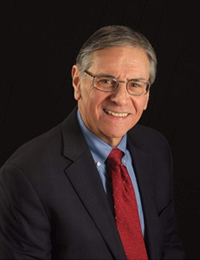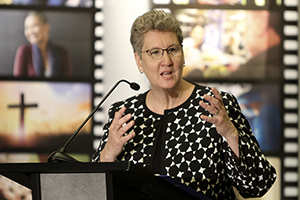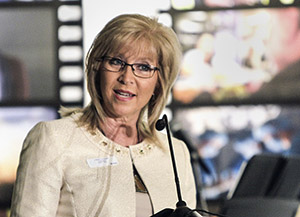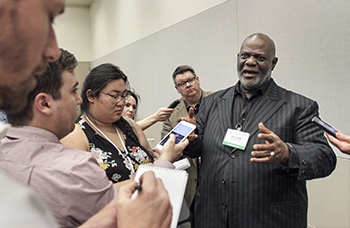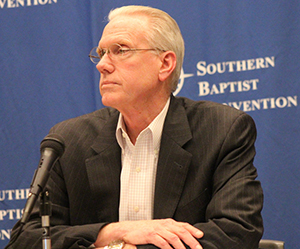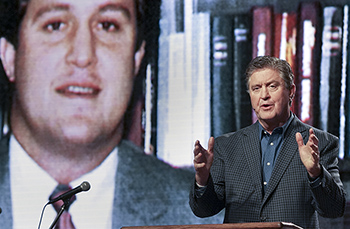CBF surpasses $12 million fund-raising goal
ATLANTA—The Cooperative Baptist Fellowship surpassed its $12 million fund-raising goal for an endowment campaign the group launched last June.
CBF Executive Coordinator Suzii Paynter announced the achievement at the Fellowship’s 25th anniversary celebration dinner in Atlanta.
Total gifts and pledges for the campaign, which is focused on the long-term sustainability of CBF missions and ministries, has reached $12,103,062.98, she said.
Nearly 80 percent of the campaign goal will increase CBF’s endowments, which will help sustain CBF ministry the next 25 years. Additional funds will support block grants to the Fellowship’s 18 state and regional organizations for ministry in their areas.
On the state and regional level, the grants will support church starts and young leadership development, theological education, ministry to the nation’s poorest counties, clergy wellness, asset-based community development, and retreats and camps for clergy, laity and students.
Lead contributors included the Eula Mae and John Baugh Foundation, Christ is Our Salvation Foundation, Patricia and Robert Ayres, and John and Jeanette Cothran. CBF congregations, partner organizations, theological schools, foundations and many more individuals also contributed.
Of the $12 million, half will support CBF Global Missions. Specifically, that portion of the campaign will help sustain the long-term presence of field personnel ministering in 30 countries, reinstate a two-year mission apprenticeship program and impact the poorest counties in the United States through the Fellowship’s rural poverty initiative, Together for Hope.
At the 25th anniversary event, CBF named the mission apprenticeship program, called the CBF Global Service Corps, after Dick and Jesmarie Hurst of First Baptist Church in Tyler for their commitment to volunteer medical missions alongside CBF field personnel. Dick Hurst died in 2014, and an estate gift given by the Hursts formed the foundation of an endowment fund, the earnings of which will help fund the work of Global Service Corps missionaries.
CBF’s ministries that help form healthy congregations will receive $4 million from. The campaign will support an intentional congregational renewal process, advocacy work that assists others in finding their voice, church starting initiatives and financial literacy programs for congregations and pastoral leaders.
The campaign also will help equip and nurture young Baptists by adding $2 million in endowment support for theological education, scholarships, retreat experiences and church internships.
“Christ’s love is compelling us to greater ministry near and far to ‘unleash heaven’s kingdom here on earth,’” Paynter said, quoting from the Fellowship’s commissioned anniversary anthem called “Christ’s Love Compels Us.”
“Celebrating our 25th anniversary has been an opportunity to invest in the future of CBF. It has been opportunity to invest in missions, in ministry, in our identity and in our young Baptists. It has been an opportunity to partner with other people and with other churches in support of the great multiplication of God’s work in the world.”
